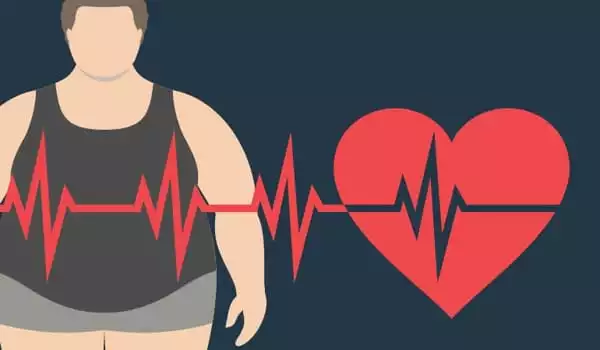Obesity is a huge problem in the United States, but new research from UT Southwestern reveals that we may need to adjust our perspective on fat. Historically, the Body Mass Index, or BMI, has been used to determine body fatness. It is determined by a person’s height and weight. According to new Mayo Clinic research, a lack of sleep mixed with the easy availability of food increases calorie consumption and, as a result, fat buildup, particularly harmful fat inside the belly.
A randomized controlled crossover study conducted by Naima Covassin, Ph.D., a cardiovascular medicine researcher at Mayo Clinic, found that not getting enough sleep resulted in a 9% increase in total abdominal fat area and an 11% increase in abdominal visceral fat when compared to control sleep. Visceral fat is deposited deep inside the abdomen around internal organs and is strongly linked to cardiac and metabolic diseases.
The findings are published in the Journal of the American College of Cardiology, and the study was funded by the National Heart, Lung, and Blood Institute.
Sleep deprivation is frequently a behavior choice, and it has become increasingly common. More than one-third of adults in the United States do not get enough sleep on a regular basis, owing in part to shift work and the use of smart gadgets and social networks during traditional sleep times. Furthermore, people tend to consume more during extended periods of wakefulness without increased physical activity.
Our findings show that shortened sleep, even in young, healthy, and relatively lean subjects, is associated with an increase in calorie intake, a very small increase in weight, and a significant increase in fat accumulation inside the belly.
Professor Virend Somers
“Our findings show that shortened sleep, even in young, healthy, and relatively lean subjects, is associated with an increase in calorie intake, a very small increase in weight, and a significant increase in fat accumulation inside the belly,” says Virend Somers, M.D., Ph.D., the Alice Sheets Marriott Professor of Cardiovascular Medicine and the study’s lead investigator.
“Normally, fat is preferentially deposited subcutaneously or under the skin. However, inadequate sleep appears to redirect fat to the more dangerous visceral compartment. Importantly, although during recovery sleep there was a decrease in calorie intake and weight, visceral fat continued to increase. This suggests that inadequate sleep is a previously unrecognized trigger for visceral fat deposition and that catch-up sleep, at least in the short term, does not reverse the visceral fat accumulation. In the long term, these findings implicate inadequate sleep as a contributor to the epidemics of obesity, cardiovascular and metabolic diseases,” says Dr. Somers.
The trial cohort consisted of 12 healthy, non-obese persons who spent two 21-day sessions in the inpatient environment. After a three-month washout period, participants were randomly allocated to the control (normal sleep) or restricted sleep groups for one session and the opposite during the next. Throughout the trial, each group had free access to meals. Researchers tracked and analyzed caloric intake, energy expenditure, body weight, body composition, fat distribution, including visceral fat or fat inside the stomach, and circulating appetite biomarkers.

The first four days were spent acclimating. During this time, all participants were permitted to sleep for nine hours in bed. The limited sleep group was granted four hours of sleep every night for the next two weeks, whereas the control group was allowed nine hours. This was followed by three days and nights of rest, with both groups spending nine hours in bed.
During the sleep restriction stage, participants consumed more than 300 extra calories per day, eating around 13% more protein and 17% more fat than during the acclimation stage. This increase in consumption was greatest during the first few days of sleep deprivation and gradually tapered off to pre-deprivation levels during the recovery phase. Throughout, energy expenditure remained largely constant.
“The visceral fat buildup was only found by CT scan and would have gone unnoticed otherwise, especially since the weight gain was relatively modest — only around a pound,” Dr. Covassin explains. “Weight measurements alone would be erroneously encouraging in terms of the health repercussions of insufficient sleep. The possible impact of repeated periods of insufficient sleep on progressive and cumulative increases in visceral fat over several years are also cause for concern.”
Dr. Somers believes that behavioral therapies, such as increased exercise and healthy diet choices, should be addressed for persons who are unable to avoid sleep disruption, such as shift workers. More study is needed to determine how these findings in healthy young people relate to people at higher risk, such as those who are already obese, or have metabolic syndrome or diabetes.
















